Before a title, before the characters, before anything else, I know my first line.
Since my first attempts as a writer, I couldn’t embark on a new project without knowing that first line—as if a simple sentence was the embryo for everything that was to follow. In The School for Good and Evil, for instance, those opening words: “Sophie had waited her whole life to be kidnapped” became my guiding light through the Endless Woods of dark fairy tale fantasy. Indeed, that first line became the series’ entire DNA template; when in doubt, I’d ritually look back at it to see not just a ‘beginning,’ but tone, theme, character, inspiration.
To writers new and old, then, I offer this list as a gentle encouragement to keep our ambitions low and our boldness high. After all, embarking on a quest to write the perfect novel is a fool’s fantasy. But a perfect first line is within all of our reach.
Here are five of my favorite opening lines from SFF novels:
Lev Grossman’s The Magicians
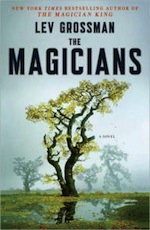
“Quentin did a magic trick. Nobody noticed.”
In a single line, Lev Grossman already separates his ‘magic school’ novel from J.K. Rowling’s Harry Potter series, to which it is inevitably compared. Here is a hero who knows he is a magician, versus a boy on which a magical destiny is thrust. Here is a boy who wants people to notice his magic. And here is a boy longing for a world who will appreciate his ability to do magic… All this in two simple sentences.
William Gibson’s Neuromancer
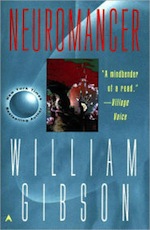
“The sky above the port was the color of television, tuned to a dead channel.”
Character often works better than setting as the subject of a stirring first line, but here Gibson uses an image so stark, arresting, and memorable that we can both clearly visualize the gray, drab world as well as sense the flat monotony of a new dystopia. Though the image itself is bleak and stagnant, that itself is the point: already we’re asking the question what kind of hero can rise above it.
C.S. Lewis’ The Voyage of the Dawn Treader
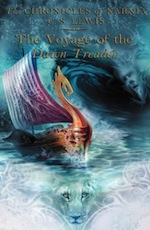
“There was a boy called Eustace Clarence Scrubb, and he almost deserved it.”
Lewis ritually produces great first lines in the Narnia series, but this is my favorite. It introduces a character, makes terrible fun of him, and yet the addition of the word “almost” gives us hope that he has the chance—even the smallest glimmer—of being someone we might come to love. In one sentence, a protagonist is born.
M.T. Anderson’s Feed
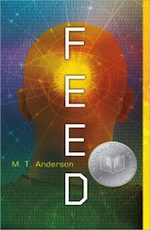
“We went to the moon to have fun, but the moon turned out to completely suck.”
Anderson’s vision of a future world destroyed by consumerism is ostensibly for teenagers—hence the slangy, coarse language of the first line—but there’s an entire novel planted in this opening seed. Earth is no longer a place of pleasure… the moon was targeted as a new frontier… and it has either let us down or we’ve ruined it the same way we have earth. How these three elements come to pass keeps us turning the pages until the beautiful, surprising end.
J.M. Barrie’s Peter Pan and Wendy
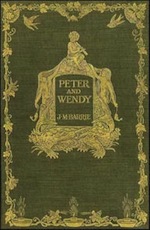
“All children, except one, grow up.”
Barrie’s first line is often cited as one of the greatest openings in all of literature and it’s easy to see why. Here, in six words, he’s put us at the edge of the cliff. Who is this child that doesn’t grow up? Is he friend or is he foe? And who are we to be identifying with—the child who doesn’t grow up or the ones that do? Such big, big questions from a simple thought.
Top image by Sebastian Giacobino.
Soman Chainani‘s YA trilogy The School for Good and Evil concludes with The Last Ever After, available now from HarperCollins.









